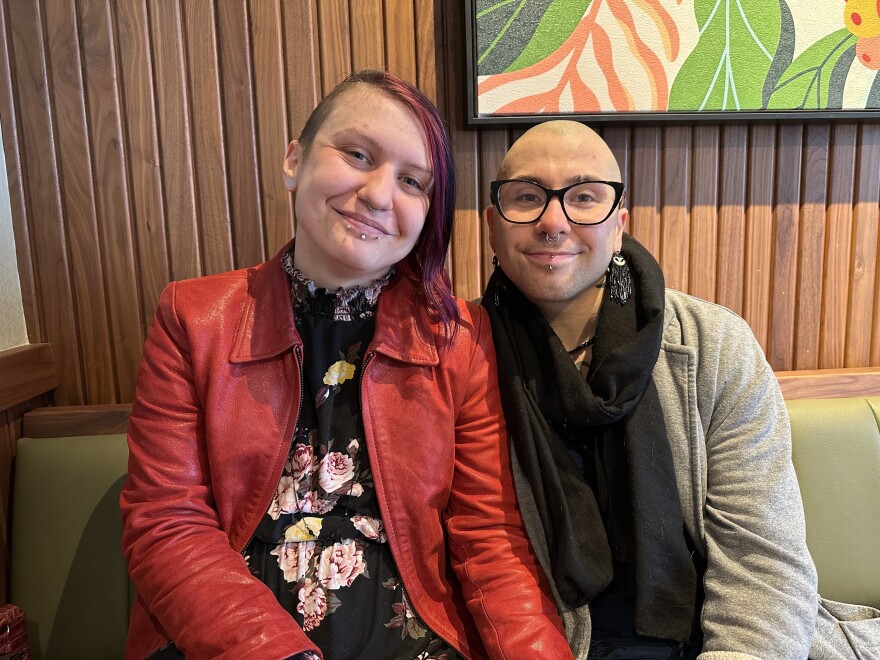BETHLEHEM, Pa. — There’s a new LGBTQ organization in the region, and the group will soon host its first major event.
Community organizers Robin Gow and Rain Black in January cofounded the mutual aid network Queer & Trans Lehigh Valley (QTLV).
Now, the organization is hosting its first event: a Western-themed party called ‘Fruits in Boots’ at the Ice House in Bethlehem at 6 p.m. on September 13th.
The event will feature country music, dancing, food with vegan and gluten-free options, games and crafts. It will be a sober event, so those under 21 years old are welcome to attend.
Attendees will be asked to pay what they can as an entrance fee and are not required to pay anything at all, Black said.
“[Fundraising] is just kind of a secondary purpose of the party. The main purpose is to be in community together,” Black said.

QTLV has hosted several other events since its founding, such as couponing workshops and foraging events.
Fruits in Boots is expected to be its biggest event yet, Black said. They also have a sponsor for it — Novus Medical Services Bethlehem, a sexual health clinic that focuses on serving the LGBTQ community.
What are mutual aid networks?
Mutual aid networks are organizations that collect donations for needed social and economic resources like food, rent, medical costs and debt, then give the money or supplies directly to people who need it.
QTLV does not have a set leadership structure, and anyone who attends their meetings is considered a member, Gow said. It is not registered as a 501c3 nonprofit.
Black and Gow founded QTLV soon after leaving their positions at the Bradbury-Sullivan LGBTQ Community Center.
Gow says they now both believe the nonprofit model isn’t always the best way to help people.
“As someone who's worked in the nonprofit industry, I find a lot of it exploitative of the people who are supposed to be being helped, and kind of creating a middleman between actually helping people and funders,” Gow said.
“There's always all these levels of gymnastics that money passes through before it actually gets to people.
“Something that I've seen in our community is that a lot of times, people's lives would be exponentially better if they could just get their debt paid for, or have their month's rent paid for.”
Black said to receive funding from QTLV, people have to be part of the LGBTQ community in the area. They do not have to show their financial information.
“What's exciting about, and the point of, a mutual aid collective is that we can be flexible, If there's a need that really emerges… we can adjust.”Robin Gow
“Usually we know the people, or someone can vouch for them,” Black said. “We try not to have too many barriers, but we do want to be sure that the people that are donating are actually donating to who they think they are, and not scammers.”
Gow said he is open to evolving QTLV in any way its members feel is necessary.
“What's exciting about, and the point of, a mutual aid collective is that we can be flexible,” Gow said. “If there's a need that really emerges… we can adjust.”


